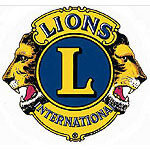
Richard Harris says losing your vision is “very scary, not something anyone plans on,” and he should know. On New Year’s Day 2006, Harris suffered a stroke that took away his left-looking peripheral vision and left his family wondering where to turn for help.
They found the answer at the Lions Low Vision Center of Texas on the North Campus of the Health Science Center. The center provides low vision evaluation, resources and rehabilitation to individuals whose eyesight cannot be corrected by traditional means such as surgery and eyeglasses. It is a partnership of the Health Science Center’s Medical School, School of Allied Health Sciences and Lions Clubs International.
“I had a team of very fine doctors, including internists, neurosurgeons and hematologists,” Harris said. “They told me I had a stroke and put me on anti-clotting medicine, but that left me with concerns of how to drive, how to read and how to work. We did not know about the Lions Low Vision Center. My wife did the Internet research, and we learned about the possibility of low vision rehabilitation. After requesting a referral for occupational therapy while hospitalized with my stroke, the therapist handed me a card for Dr. Sandra Fox. The doctors who treated me did not know about Dr. Fox or this available treatment.”
Dr. Fox, an optometrist and assistant professor in the Health Science Center department of ophthalmology, is a specialist in low vision and works closely with Melva Perez, a registered occupational therapist and assistant professor in the department of occupational therapy. These faculty members bring considerable talents to the Lions Low Vision Center to help individuals gain back their freedom in daily living.
“Dr. Fox did a wonderful, thorough examination of my eyes,” Harris said. “I left there with hope, and it was the first time I had had any since my stroke.”
Once the extent of his visual field deficit was assessed, a low vision device could be prescribed to help him most effectively use his remaining vision. To fill the gap in Harris’ left peripheral vision, Dr. Fox selected a prism that bends light to help his eyes compensate.
“The prism is a small plastic optic on his lenses,” Dr. Fox said. “This device shifts the images on the left to the seeing part of his vision. A pair of glasses with a prism ground into the left lens is on order to compensate for his lost vision.”
On a device called the Dynavision, Harris learned “to become aware of where things are.” The Dynavision, installed when the Lions Low Vision Center opened in 2002, is a board with an array of lights that blink in patterns, improving users’ reaction times, eye-hand coordination, visual attention and visual processing.
Perez also worked with Harris on his peripheral awareness as he performed tasks of daily living, including reading, writing and driving. She helped him with a driving evaluation, and his reactions were rated to be as quick as a normal sighted driver.
Harris is an on-the-go sales consultant with Nextep Business Solutions, a human resources company that serves small businesses, so it is very important that he has mobility to serve his customers. He wants physicians and fellow stroke survivors to know about the Lions Low Vision Center. “You don’t have to shut down and not function. There is hope,” he said.
Harris and his wife, Joyce, have a 14-year-old daughter, Zita, which keeps them busy in their home lives, too. They were so pleased with the Lions Low Vision Center that they arranged a $25,000 donation to the center from the S. T. and Margaret D. Harris Foundation, based in Dallas. The foundation was started by Richard Harris’ father and mother.
“This generous donation will allow the Lions Low Vision Center to continue to utilize innovative methods and a multidisciplinary approach to low vision rehabilitation, with a goal of improving quality of life for anyone that experiences vision loss,” Dr. Fox said.

